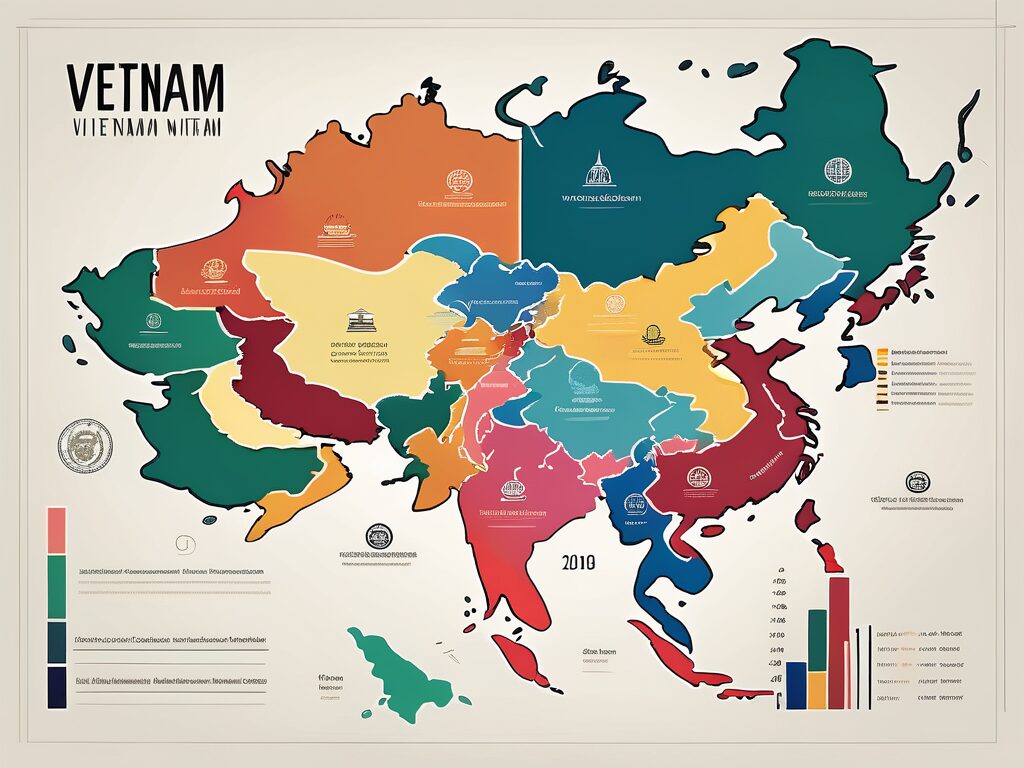Vietnam, a Southeast Asian country with a rich cultural heritage, has been making significant strides in various sectors, including education. One of the most notable areas of progress is the increasing proficiency in English among its populace. This article delves into the English proficiency levels in Vietnam, exploring the factors contributing to this development, the significance of English proficiency in the country, and the challenges faced in the quest for English language mastery.
The State of English Proficiency in Vietnam
English is considered the second language in Vietnam, with the government emphasising its importance in the national education system. The proficiency levels have been on an upward trajectory, particularly in urban areas and among the younger generation. This is largely due to the integration of English learning into the school curriculum from a young age.
However, the proficiency levels vary across the country. Urban areas such as Ho Chi Minh City and Hanoi have higher proficiency levels compared to rural areas. This disparity can be attributed to the availability of resources and the quality of English education in these regions.
English Proficiency Rankings
According to the EF English Proficiency Index, Vietnam ranks 34th out of 100 countries in English proficiency. This is a significant improvement from previous years, indicating the country’s commitment to enhancing English language skills among its citizens. However, there is still room for improvement, especially when compared to neighbouring countries such as Singapore and Malaysia, which rank higher in English proficiency.
The rankings are based on test scores from different English tests, including TOEFL and IELTS. They provide a snapshot of the country’s English proficiency levels, highlighting areas of strength and areas that need improvement.
The Importance of English Proficiency in Vietnam
English proficiency plays a crucial role in Vietnam’s socio-economic development. As the country continues to integrate into the global economy, English has become a vital tool for communication and business. It opens up opportunities for trade, tourism, and foreign investment, contributing to the country’s economic growth.
Moreover, English proficiency enhances the employability of individuals. Many employers, particularly in sectors such as technology, tourism, and international business, prefer candidates with good English skills. This is because English is often the medium of communication in these sectors, especially when dealing with international clients or partners.
English in Education
English proficiency is also important in the field of education. Many Vietnamese students aspire to study abroad, particularly in English-speaking countries. Having a good command of English not only increases their chances of securing admission in foreign universities but also helps them adapt to the academic environment.
Furthermore, many educational resources, such as textbooks and research materials, are in English. Therefore, having a good command of English allows students to access a wealth of knowledge, enhancing their learning experience.
Challenges in Improving English Proficiency
Despite the progress made in improving English proficiency in Vietnam, several challenges persist. One of the main challenges is the lack of qualified English teachers. Many teachers in rural areas lack the necessary training and resources to effectively teach English, resulting in lower proficiency levels among students in these regions.
Another challenge is the heavy focus on grammar and vocabulary in the English curriculum, often at the expense of speaking and listening skills. This leads to a situation where students can read and write in English but struggle with conversation. This is akin to knowing the ingredients of a dish but not knowing how to cook it.
Addressing the Challenges
The Vietnamese government has been implementing various measures to address these challenges. These include teacher training programmes, curriculum reforms, and the introduction of English language centres. These measures aim to improve the quality of English education and enhance the proficiency levels among the populace.
Moreover, the government is encouraging the use of technology in English learning. This includes online learning platforms and language apps, which provide interactive and engaging ways of learning English. These digital tools can be particularly useful in rural areas, where access to quality English education is limited.
Conclusion
In conclusion, English proficiency levels in Vietnam have been improving, thanks to the government’s emphasis on English education and the increasing recognition of the importance of English in the globalised world. However, challenges remain, particularly in rural areas and in the teaching methodology. Addressing these challenges will be crucial in ensuring that the progress made in English proficiency is not only sustained but also accelerated.
Elevate Your Teaching Career with IPGCE
As Vietnam continues to embrace English proficiency for global engagement, educators have a pivotal role in shaping the future. If you’re an educator aiming to enhance your qualifications and thrive in international schools, IPGCE is your gateway to success. Our International Postgraduate Certificate in Education is tailored to help you overcome the barriers of stringent qualification requirements, offering a significant edge with a 50% increase in interview callbacks. Embrace the opportunity for career progression with a 45% boost in promotion rates and a 30% salary hike. Join a vibrant professional community, gain in-depth insights into global education systems, and balance your professional development with your teaching commitments through our flexible online study options. Don’t let inadequate credentials limit your potential. Join the UK’s #1 Teacher Training Course today and be part of the change in Vietnam’s educational landscape.

